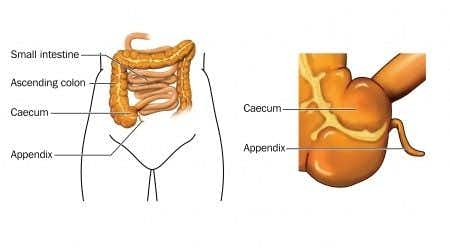This case involves a female prison inmate who suffered serious injuries from a ruptured appendix while she was serving time in a county correctional facility. The Plaintiff first presented to the prison infirmary with complaints of severe, radiating pain in her abdomen. She noted difficulty urinating as well as ongoing constipation that had lasted for several days, in addition to chills and sweating. Despite these symptoms, medical staff at the prison did not thing that the woman’s illness was genuine. Despite pleading with medical staff, the Plaintiff received only a brief examination and was given Tylenol for her pain. Over the course of the next few days , the Plaintiff continued to complain of crippling abdominal pain and sought help from the infirmary on multiple occasions, however infirmary staff did not provide additional care. Eventually, the Plaintiff’s appendix burst, and she was taken out of the prison for treatment at a local hospital. The patient suffered from sepsis and endured a lengthy recovery process, and has suffered ongoing medical issues as a result.
Question(s) For Expert Witness
1. Do you routinely treat patients similar to the one described in the case?
2. What is the standard workup when presented with a patient with these symptoms?
3. Have you ever had a patient develop the outcome described in the case?
4. Do you believe this patient may have had a better outcome if the care rendered had been different?
Expert Witness Response E-013177
I have treated patients routinely with conditions such as this, and I am highly knowledgeable about the standard of care and specialized in quality and risk management at correctional facilities. At the very minimum, there should have been lab work done such as a complete blood count with differential as well as a basic metabolic panel. Seeing as the inmate had not urinated or moved her bowels in some time, there should also have been an abdominal assessment, documented vitals, and temperature taken. It sounds like she was septic at the time of her presentation to the infirmary, and she would have had an elevated temperature if that were true. Also a baseline of her blood pressure should have been documented, since a low blood pressure would have shown the sepsis setting in. Depending on the results of the lab work, the next step would have been an abdominal ultrasound or a CT scan of the abdomen. Depending on the correctional facility, an abdominal ultrasound could have been done with a portable unit, meaning someone could come into the facility to do the imaging. If this was not an option, the inmate should have been transported to the nearest hospital to have a CT of the abdomen to rule out an appendicitis. In untreated appendicitis death can occur in 3 days after patient goes septic, their kidneys shut down, and they go into organ failure.
About the author
Joseph O'Neill
Joe has extensive experience in online journalism and technical writing across a range of legal topics, including personal injury, meidcal malpractice, mass torts, consumer litigation, commercial litigation, and more. Joe spent close to six years working at Expert Institute, finishing up his role here as Director of Marketing. He has considerable knowledge across an array of legal topics pertaining to expert witnesses. Currently, Joe servces as Owner and Demand Generation Consultant at LightSail Consulting.



